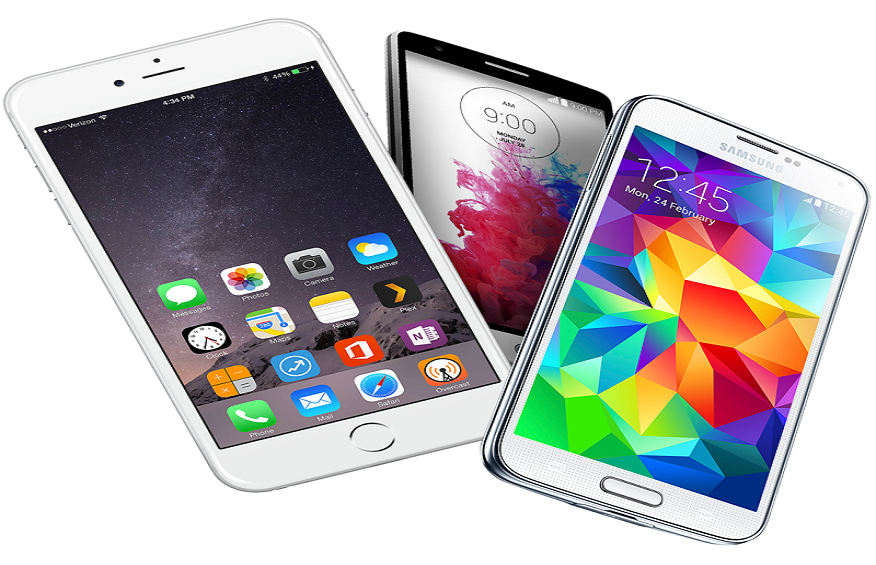The development of portable mobile communication devices is supported by a communication utopia “anywhere, always” (” anywhere, any time “), that is to say by the idea that one can communicate easily, immediately , in all possible ways, of all the places and situations that we go through as people, and that this ideal constitutes the ultimate and desirable end of the process of technological innovation
1. Freeing users from the fixity of places, the mobile phone represents a link with the outside, rather
the near outside, both from an intimate and spatial point of view (Pierre-Marie, 2005). The geometric power of places, whether closed or open, is circumvented by mobile telephony which, being compatible with mobility, materializes the possibility of not staying at home (office, home) to receive telephone calls. By removing this ‘old’ necessity, the mobile phone has reduced the socio-economic role of the place (Rutie, 2005). In particular, it transformed the notion of belonging to a place and replaced it with a new meaning: belonging to one’s communication network,
2. This sense of belonging elicits both positive and negative reactions. In the context of our study, it is
mainly the negative reactions that have been noted. Indeed, the fundamental feature associated with the mobile, which can also make it “disturbing” and intrusive for the young respondents, is that it affects the private domain of its owner. The possibility of receiving communications on one’s mobile at any time of the day or night represents a fact that diminishes the feeling of freedom and autonomy in the private space, and conversely accentuates the feeling of “being controlled .
Adrien: When I bought a cell phone I said to myself I’m free I’m going to call my friends whenever I want, but I realized that it’s not my friends who often call me but it’s my parents to tell me where are you? It’s the control, I quickly got drunk on the mobile phone that I started by filtering the calls.
3. According to this testimony, if the acquisition of a mobile gives the illusion of freedom.
it can also refer to the geographical location of individuals in the public space and to social control. The case of our respondent Adrien is revealing since it shows how, with this mode of permanent contact authorized by the mobile, a certain parental control was exercised over his activities. The age variable is important because it was during his adolescence that he experienced such situations. In the particular case of parental control exercised by mobile phone, it is interesting to note the tricks that the controlled subjects resort to in order to escape the imposed constraints. Thus the action of turning off your mobile or leaving it at home to enjoy outings with friends translates into an effective solution for circumventing social influence.
4. In the Western critical tradition, the term technology almost always appears associated with the idea of control (Machado Da Silva, 2008).
In the context of this study, it is trivial to underline how the control by mobile presents itself as an embarrassing event in the lives of the respondents. The mobile allows a relationship of permanent connectivity to the other while making it possible to follow him on a daily basis, sometimes even going so far as to spy on him. For several respondents, it is the mobile phone that allows them to manage everyday tasks, to organize meetings with the social network, but in a context marked by the proliferation of contacts where the mobility of the device requires answer, the commitment is experienced as a malaise and the intensity of the relationship becomes more overwhelming.
Mobile freedom or mobile addiction?
5By analyzing how mobility is experienced throughthe mobile phone, we realize that owning a mobile phone is much more than a reference to this freedom of movement and displacement which allows the user to free himself from the fixity of space to reach the myth ubiquitous communication. The personal relationship to the mobile intervenes in the value that we attribute to this mobility and the symbolism of the communicating object is nuanced from one person to another. Within the sample studied, the report sensitive to his motive is not the same among all respondents.
If a minority has the expertise to behave with their mobile (turning it off when necessary, being able to do without it from time to time, not letting it overwhelm daily life), we have noticed on the other hand that the majority remains chained to his mobile phone, the latter creating in her a kind of physical and mental dependence. So let’s look at the words of Sara, Natalia and Madalina, three young students who took part in our survey:
forgotten it at home you already panic because maybe it’s there’s someone who’s going to call you, there’s probably no one but you’re panicked, if you have the cell


